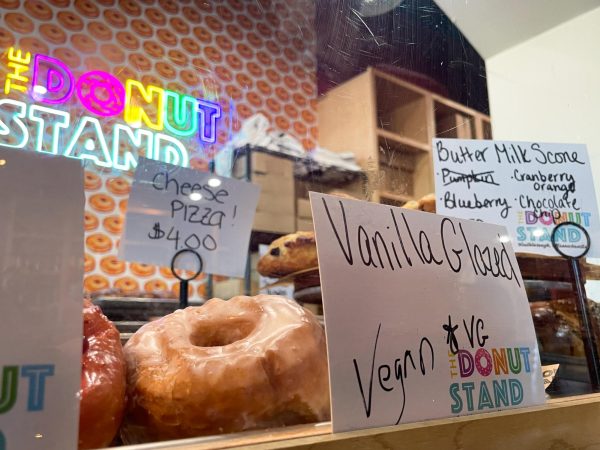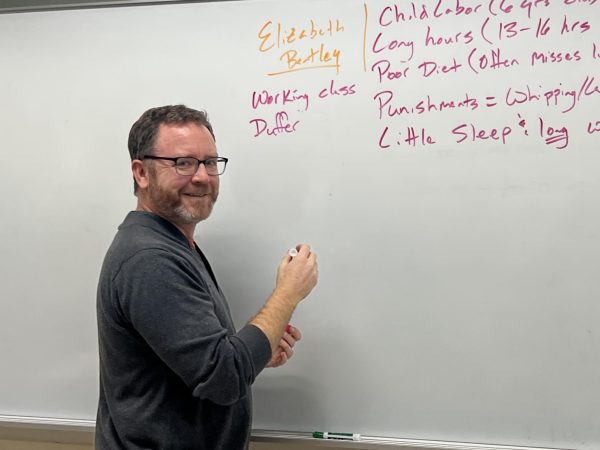Effects of Coffee
It is the dark brown substance that some people swear by and some people dismiss at the drop of a hat.
Coffee. It may be one of the most studied drinks out there, yet so many people are still misinformed about it.
“I drink coffee because I can’t stay awake otherwise,” senior Beth Kistner said.
“I drink coffee to function normally,” Hopkinton resident Cameron Field said.
Some people drink it because they feel they need it and without it they wouldn’t be themselves, yet others don’t drink it for just that reason, because they don’t want to become reliant on it.
Some people can’t stand the taste, so they pack their cups full with cream and sugar. While some prefer to drink it in a more natural way.
“The downside is everything we put in–a lot of sugar, dairy products, sweetener–all that stuff that makes the coffee non-beneficial,” wellness teacher Michael Hooker said.
Once all of the sugar and dairy products are put into the coffee, it isn’t healthy anymore because of all of the added calories.
There have been numerous studies done on the brown liquid, and many lies told by parents to their children to stop them from drinking it, the most common being that it causes stunted growth, and some people still believe it.
Is that lie really necessary anymore?
The answer is no. According to Harvard Health Publications, “There is no scientifically valid evidence to suggest that coffee can stunt a person’s growth.”
Coffee has undergone a lot more research and people are actually finding a lot of benefits. There are negatives of drinking coffee, but for a lot of people they are not the reasons they were thinking of.
“Coffee is good for you, especially the more that they research it, the more they find health benefits,” Hooker said.
Studies have been done on the risk of different diseases actually going down after drinking coffee.
“Coffee drinkers, compared to nondrinkers, are less likely to have type 2 diabetes, Parkinson’s disease, and dementia,” according to WebMD. “They have fewer cases of certain cancers and, heart rhythm problems, and strokes,” which are huge problems in the United States, and something as simple as drinking coffee could help.
According to Joe Vinson, a chemistry professor at the University of Scranton, “Americans get more of their antioxidants from coffee than any other dietary source. Nothing else comes close.”
Antioxidants are really important in our diet. According to University Health News, “antioxidants help us to properly detoxify the body of harmful molecules.”
And according to Health Harvard Publications, “Not only is caffeine a brain stimulant, but it also blocks receptors for a chemical called adenosine, which normally prevents the release of excitatory brain chemicals. With adenosine out of the way, these brain-sparking chemicals can flow more freely—giving you a surge of energy and potentially improving mental performance and slowing age-related mental decline.”
Coffee can lower the risk of many diseases, provide a huge source of antioxidants, and maybe even boost cognitive function. Is that enough for people to drink it? For some, these benefits may outweigh the negatives that have also been researched.
According to an article on the National Public Radio website, “Many of us experience heartburn, or reflux, from time to time — and when we do, we’re quick to point the finger at heavy, fatty meals. But that burning, uncomfortable feeling may also be the result of what we’re drinking: namely, coffee and other caffeinated beverages.”
This can be an issue for some people who already experience heartburn regularly without drinking coffee.
“A little bit is okay, but the problem is more is not better. It’s really a fine line with coffee, too much and you can get anxiety, and teens are already under stress and they already have high levels of anxiety, and coffee just exasperates it in large doses,” Hooker said. “And that’s the downside of teen use and coffee.”
This suggests that drinking coffee in smaller amounts, especially in the teenage years could be beneficial.
“Coffee makes me feel a lot more tired when I don’t drink it, and I get headaches, so it’s not good when I don’t drink it,” senior Beth Kistner said.
That is a valid concern for some people and different bodies handle coffee differently. For senior Julianna Kramer, she has never wanted to drink it on a regular basis.
“Sometimes I wish I could get the benefits of the caffeine, but I also see my friends who go through withdrawal symptoms when they don’t have coffee every day, so I get turned away by that,” Kramer said.
Withdrawal symptoms like Kramer and Kistner described are very real for some people, but for some they are OK with that, because they can stay awake.
“I feel like my body rejects it. It just doesn’t make me feel good. My energy level goes up and then I crash shortly after,” Hopkinton resident Debbie Pohl said.









